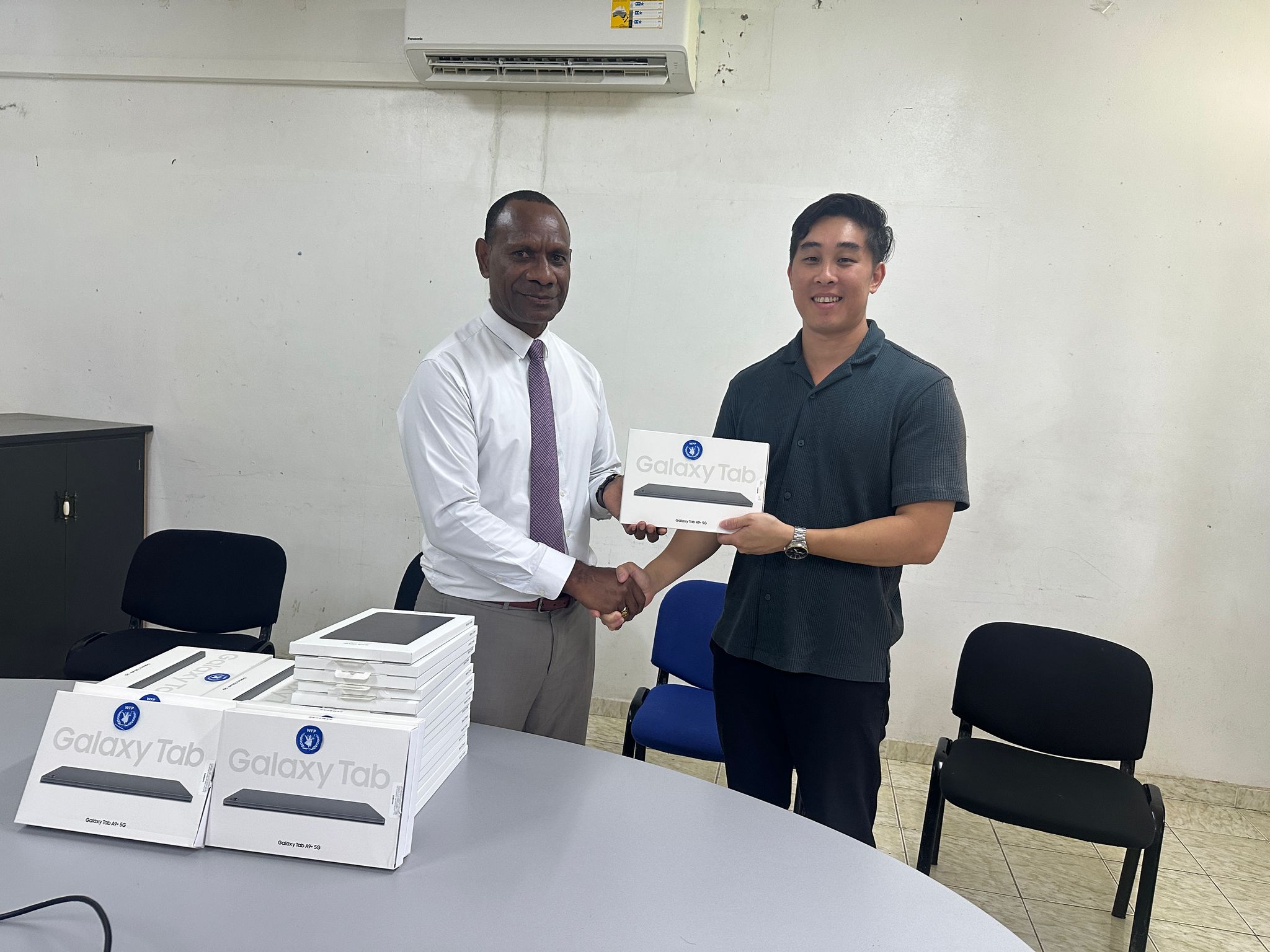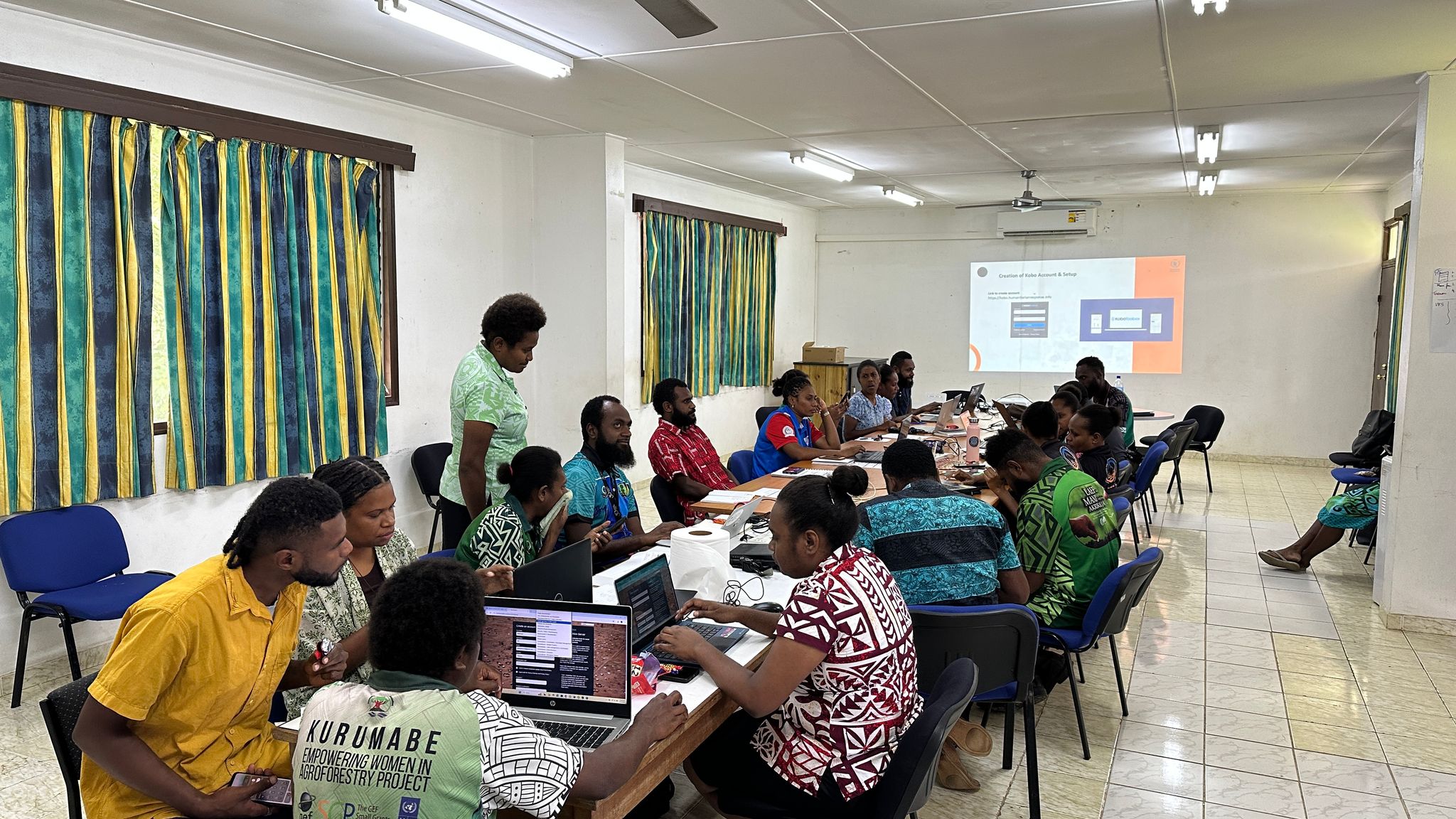The Ministry of Agriculture, Livestock, Forestry, and Biosecurity (MALFB), in collaboration with the World Food Programme (WFP) and the Food Security & Agriculture Cluster (FSAC/FSL) have undertaken a four-day Kobo Toolbox training aimed at improving data collection and management for disaster response and food security assessments.

The training was a key step in strengthening MALFFB’s data-driven decision-making capabilities, particularly in the wake of the December earthquake.
Manager of the Project Management & Risk Resilience Unit (PMRRU) at MALFB, Paul Worwor, said the Kobo Toolbox has been an essential tool for PMRRU since 2015, playing a fundamental role in post-disaster assessments and Monitoring & Evaluation (M&E) surveys.
He said that most assessments conducted over the years had relied on Kobo Toolbox, supporting PMRRU’s data needs as well as those of MALFB, even used for Coconut Rhinoceros Beetle (CRB) assessments.
He conveyed satisfaction that this knowledge is now being passed on to the departments, enabling them to enhance their data collection efforts and improve reporting. He further stressed the importance of technology-driven data collection in boosting the ministry’s ability to make informed decisions.
Worwor acknowledged the importance of technology-driven data collection in boosting the ministry’s ability to make informed decisions.

"Information is power, and with these kinds of tools, we can enable departments—and MALFB as a whole—to improve their decision-making and planning through better data," he said.
MALFB Director General (DG), Timothy Tumukon, also reinforced the role of accurate and timely information in shaping effective policies.
"Information is powerful! We need to use the right tools to collect, manage, and disseminate information through accurate and precise data for effective decision-making," he said.
The training covered survey design, mobile data collection, and data validation techniques, with a strong focus on practical applications for food security assessments and agricultural recovery planning.
To further support MALFB and FSAC/FSL’s data collection efforts, WFP donated tablets, tablet covers, and power banks—ensuring that field teams are well-equipped to collect real-time data, even in challenging environments
“With Vanuatu’s high vulnerability to tropical cyclones, earthquakes, and other natural disasters, having a robust, technology-driven data collection system is critical to ensuring that emergency relief and recovery efforts are both timely and well-targeted,” said the ministry in a statement.
“The collaboration between MALFB, WFP, and FSAC reflects the collective commitment to building resilience in Vanuatu’s agricultural sector and strengthening disaster preparedness and response mechanisms.
“Moving forward, the ministry and its partners aim to expand digital capacity-building programs and integrate data-driven decision-making into national disaster response strategies.”
